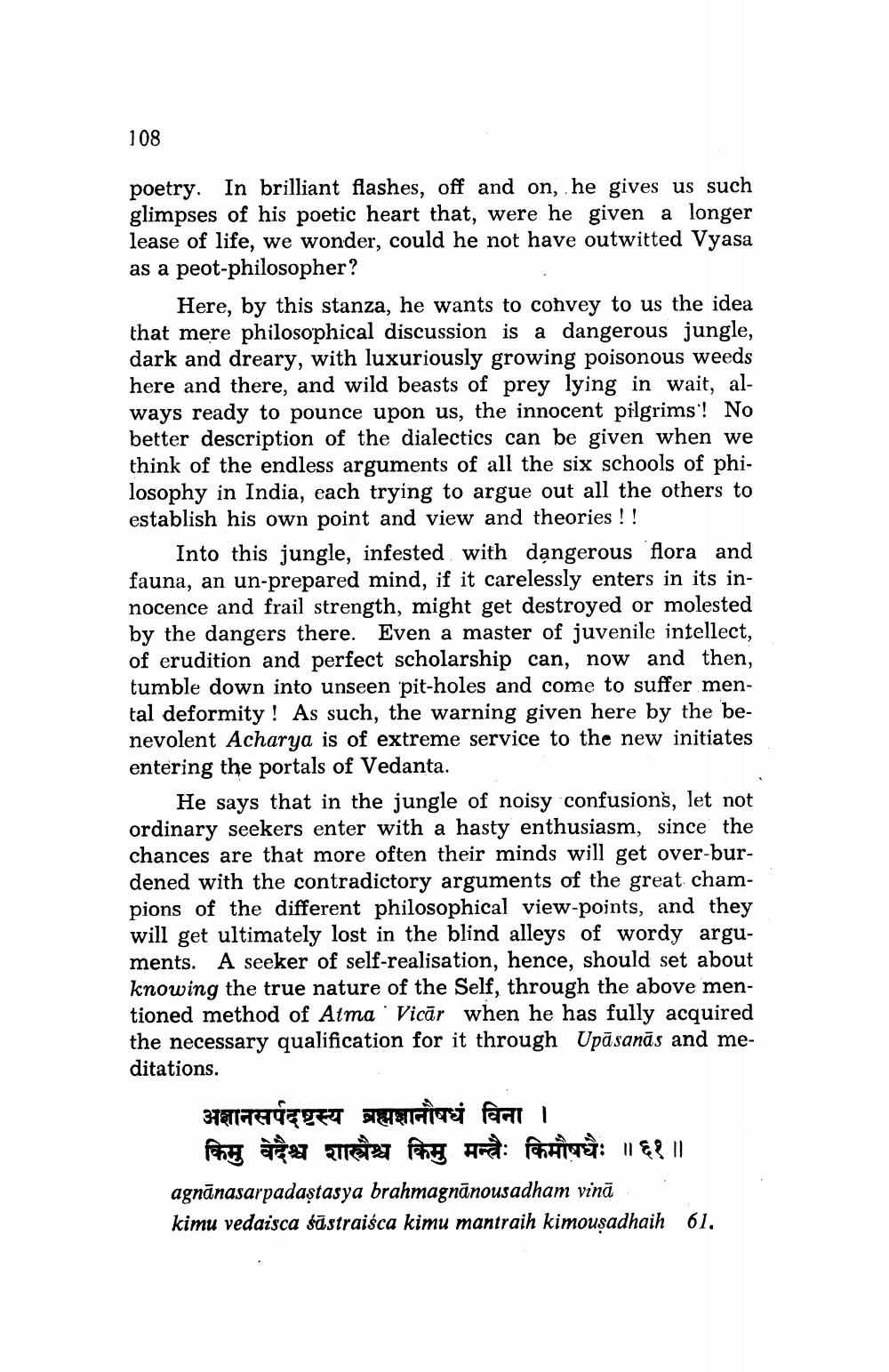________________
108
poetry. In brilliant flashes, off and on, he gives us such glimpses of his poetic heart that, were he given a longer lease of life, we wonder, could he not have outwitted Vyasa as a peot-philosopher?
Here, by this stanza, he wants to convey to us the idea that mere philosophical discussion is a dangerous jungle, dark and dreary, with luxuriously growing poisonous weeds here and there, and wild beasts of prey lying in wait, always ready to pounce upon us, the innocent pilgrims! No better description of the dialectics can be given when we think of the endless arguments of all the six schools of philosophy in India, each trying to argue out all the others to establish his own point and view and theories !!
Into this jungle, infested with dạngerous fora and fauna, an un-prepared mind, if it carelessly enters in its innocence and frail strength, might get destroyed or molested by the dangers there. Even a master of juvenile intellect, of erudition and perfect scholarship can, now and then, tumble down into unseen pit-holes and come to suffer mental deformity! As such, the warning given here by the benevolent Acharya is of extreme service to the new initiates entering the portals of Vedanta.
He says that in the jungle of noisy confusions, let not ordinary seekers enter with a hasty enthusiasm, since the chances are that more often their minds will get over-burdened with the contradictory arguments of the great champions of the different philosophical view-points, and they will get ultimately lost in the blind alleys of wordy arguments. A seeker of self-realisation, hence, should set about knowing the true nature of the Self, through the above mentioned method of Atma. Vicār when he has fully acquired the necessary qualification for it through Upāsanās and meditations.
अशानसर्पदष्टस्य ब्रह्मज्ञानौषधं विना ।।
किमु वेदैश्च शास्त्रैश्च किमु मन्त्रैः किमौषधैः ॥ ६१॥ agnānasarpadaştasya brahmagnānousadham vinā kimu vedaisca śāstraiśca kimu mantraih kimousadhaih 61.




